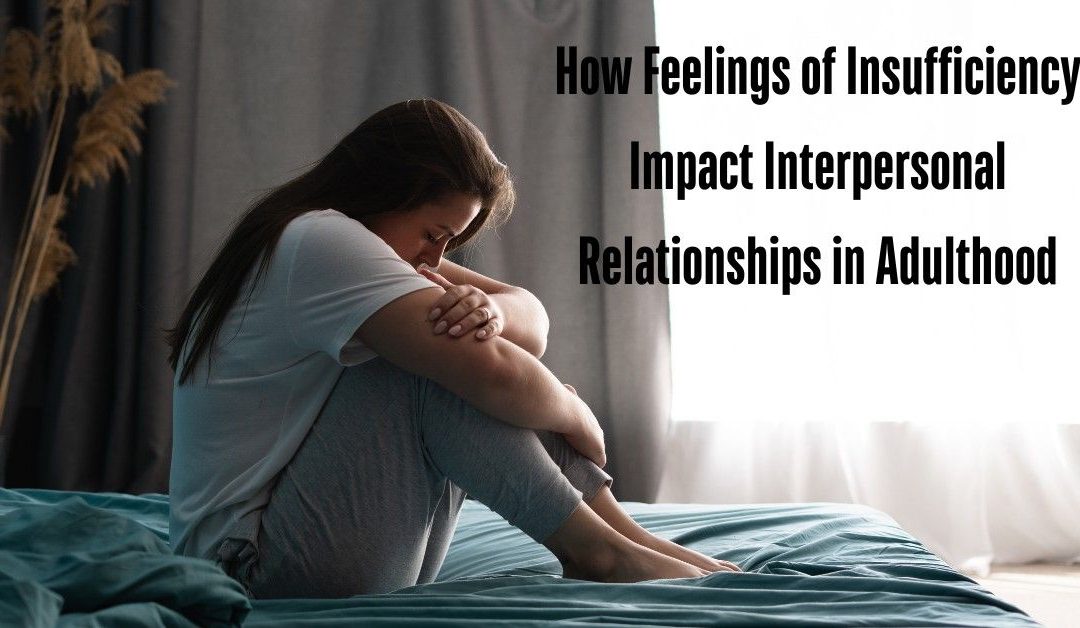Feeling Worthless
Struggling with self-worth? You’re not alone. Here’s how feelings of insufficiency can ripple through your relationships and how to navigate the storm.
Feeling like you’re not enough doesn’t just stay in your head, it sneaks into your relationships, shaping how you connect, love, and trust others. Let’s explore this emotional tug-of-war and find ways to win back control.
Introduction
Imagine this: you’re in the middle of a heartfelt conversation with a close friend, but there’s a nagging voice in your head whispering, “You’re not good enough.” Suddenly, your focus shifts from the moment to your insecurities, and the bond you’re trying to nurture feels distant. Sounds familiar?
In a society like ours in Pakistan, where social connections and family ties play a massive role in our lives, these feelings of insufficiency can silently undermine even the closest relationships. From hesitating to share your feelings with a spouse to constantly comparing yourself to a friend, these emotions create barriers that are tough to break.
But what causes these feelings of inadequacy, and how do they impact our relationships as adults? More importantly, what can we do to overcome them? Let’s unpack this together.

The Ripple Effect of Insufficiency
The Origin of Insufficiency
Feelings of insufficiency don’t appear out of nowhere. Often, they stem from childhood experiences.
- Cultural Pressures: In Pakistan, many of us grow up in environments where academic success, career achievements, or social status define our worth. When we fall short of these societal benchmarks, the seed of “I’m not enough” starts to grow.
- Parental Expectations: “Why didn’t you score the highest marks?” or “Look at your cousin; they’ve already landed a job” are common phrases we hear. These comparisons have the potential to undermine self-esteem over time.
- Unresolved Trauma: Emotional neglect, bullying, or rejection during formative years often carries into adulthood, making individuals doubt their value in every interaction.
The Impact on Romantic Relationships
In romantic relationships, feelings of insufficiency can be especially damaging:
- Overdependence: When you believe you’re not enough, you might rely heavily on your partner for validation. This can lead to clinginess and, ironically, push them away.
- Fear of Vulnerability: “What if they see the real me and leave?” This fear can make it hard to have a transparent communication, which can lead to emotional distance.
- Jealousy and Insecurity: Doubting your worth often results in questioning your partner’s loyalty or comparing yourself to others, which can strain even the strongest bonds.
Friendships in the Crossfire
Friendships, especially in adulthood, can also feel the strain of self-doubt:
- Avoidance of Deep Connections: You might hold back from sharing your true self, fearing judgment or rejection.
- Overcompensation: Some people try to mask their insecurities by becoming “the fixer” in their friend groups, always giving but struggling to receive support.
- Comparison Trap: Constantly measuring your life against your friends’ successes can lead to envy or feelings of isolation.
Family Dynamics
In our collectivist culture, family relationships are pivotal, but feelings of insufficiency can create tension:
- Unspoken Resentments: When you feel undervalued or judged by family members, it can lead to passive-aggressive behavior or withdrawal.
- Struggles with Boundaries: To compensate for feelings of inadequacy, some adults overextend themselves for family, leading to burnout and resentment.
Breaking the Cycle
Overcoming feelings of insufficiency isn’t easy, but it’s possible. Want to know how? Just understand and implement these points
Self-Awareness is Key
- Identify Triggers: Notice situations or interactions that amplify your self-doubt. Is it a sibling’s comment? A comparison on social media?
- Acknowledge Your Feelings: Instead of suppressing your insecurities, admit to yourself that they exist. Try journaling, talking to a trusted friend or seeking professional can help.
Challenge Negative Beliefs
- Reframe Your Thoughts: Say to yourself, “I’m doing my best, and that’s okay,” instead of “I’m not good enough.”
- Focus on Growth: Celebrate small wins and view mistakes as opportunities to learn, not as evidence of failure.
Strengthen Your Relationships
- Communicate Openly: Share your insecurities with loved ones. Vulnerability often deepens connections.
- Set Healthy Boundaries: Learn to say no without feeling guilty. Prioritize your emotional well-being.
- Invest in Quality Time: Instead of trying to impress, focus on being present and authentic in your interactions.
Seek Professional Support
Sometimes, overcoming deep-seated feelings of insufficiency requires professional help. Therapy can:
- Provide a safe space to explore your emotions.
- Assist you in recognizing patterns and trends in your behavior.
- Equip you with tools to build self-esteem.
Find Inspiration in Faith
In Pakistan, many find solace in turning to faith during tough times. Practices like prayer, gratitude, and reflection can foster inner peace and remind you of your inherent worth.
Conclusion
Feelings of insufficiency may whisper that you’re not enough, but they don’t define you. By recognizing their roots, challenging their grip, and nurturing your relationships with authenticity, you can rebuild connections and find strength in vulnerability.
Remember, you’re not alone in this journey. Every step you take toward self-acceptance will ripple positively into your relationships and beyond.
Wondering how these emotions impact relationships? You’re not alone. Let’s navigate these challenges together and reclaim your connections.
Ready to take the first step?
Start by having an honest conversation with someone you trust. Or, if you’re looking for professional support, reach out to a psychologist near you. Your relationships deserve the best version of you and so do you!



Wow, this blog post really resonated with me! The way you explored how feelings of insufficiency can impact interpersonal relationships in adulthood was truly insightful. I appreciated how you broke down the different ways these feelings can manifest, from people-pleasing to self-sabotage. Your writing is not only informative but also compassionate and non-judgmental.
Thank you for sharing your expertise and creating a safe space for us to explore our own thoughts, feelings, and behaviors. Your writing is a beautiful blend of psychology, empathy, and inspiration – I’m so grateful to have stumbled upon your blog!
This blog post is a game-changer! The way you shed light on the subtle yet profound ways feelings of insufficiency can affect our relationships is truly eye-opening. I love how you emphasized the importance of self-awareness, self-compassion, and self-reflection in breaking free from these patterns.